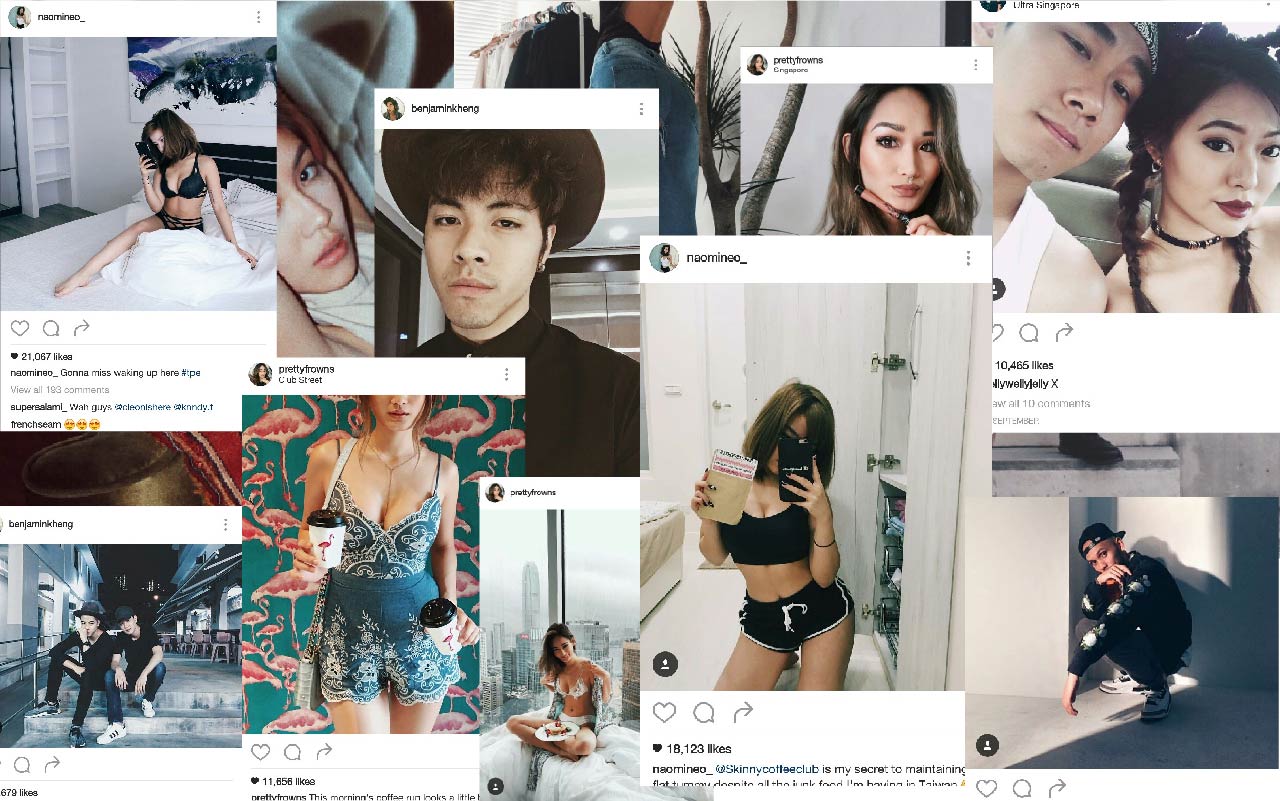But there are also the ones who I’m pretty sure have girlfriends. These are the friends who, because of what they ‘Like’ and who they follow, are responsible for populating my ‘Following’ page with countless profiles of Thai, Korean and Chinese girls (and budding influencers)—girls who are always heavily made-up and in either exceedingly tight dresses or otherwise very little.
I consider my moral standards flexible, and so I’ve never thought of this as infidelity. At the same time, I’ve always assumed that there is no way their girlfriends are at peace with them ‘Liking’ over 50 of these selfies a day.
Candice Loo (not her real name), who is currently braving a long-distance relationship, tells me that her boyfriend probably doesn’t think twice about what he ‘Likes’ on Instagram. To her at least, there’s this idea that who you are on social media should always be seen as separate from who you are in real life.
This, to her understanding, means that your ‘Likes’ do not necessarily translate into you being more interested in the superficial charm of minor celebrities than you are in your own girlfriend. Accordingly, one ogling hot strangers on social media doesn’t equate to being unfaithful.
“In any case, it doesn’t bother me,” she says, “This is like if he watches porn or whatever when I’m not around. I actually used to be quite conservative, but now that we’re doing long-distance, I try to be more open-minded. As long as he doesn’t actually cheat on me … I don’t care what else he gets up to.”
A fashion executive that I interviewed for this story, who’s based in Hong Kong, seemed to echo these sentiments: “People think Instagram is all sexy, bimbotic influencers or wannabes, but everyone in the gay community knows there’s no shortage of sultry, well-contoured men to drool over.”
For both him and his boyfriend, spending lazy weekday evenings together sharing such profiles with each other is the norm, and neither of them consider it cheating.
It’s one thing to ‘Like’ a picture, but how would you feel if your partner was leaving ‘Pretty!’ or ‘Hot!’ or ‘Babe, check out my profile?’ on random selfies?
Despite all this, the experiences of a lot of other couples hardly fit into such permissive, receptive, and controlled scenarios where limitations are accepted and boundaries are kept fluid. Few are this confident in the security of their relationships, preferring to dismiss what their romantic partners ‘Like’ on social media as just “things people do” which “don’t mean anything.”
A friend of Candice’s seemed to agree when she said, “I see my boyfriend ‘Liking’ pictures of models all the time but, it’s just what guys do right? All my friends’ boyfriends do the same. They just ignore it or they’re used to it already. Sometimes I like to look at cute Korean boys on IG too!”
From an objective standpoint, this is a pretty healthy mindset to adopt. Couples should accept that one party’s superficial enjoyment of provocative images does not always compromise the legitimacy of their affection for each other. I’ve even overheard girlfriends reprimanding guys for not “sharing” the girls they stare at in public with them.
When all this plays out in good humour, it’s proof that a relationship isn’t rife with insecurity. Yet the above comments have made me wonder if a “boys will be boys” narrative, to some extent, has shaped how we consume social media content.
In other words, has my ‘Following’ page simply made visible something I’ve always known to be true, that human beings will always be tempted to gawk at each other’s bodies, and that this is perfectly okay regardless of your relationship situation?
One can argue that ‘Following’ someone on Instagram is nothing like actually hitting on them. And yet—you can call me cynical—I’m quite sure that out of all the people commenting on the selfies of influencers, at least a good handful have girlfriends or wives.
It’s one thing to ‘Like’ a picture, but how would you feel if your partner was leaving ‘Pretty!’ or ‘Hot!’ or ‘Babe, check out my profile?’ on random selfies? Does this cross a line? If it does, how do we define these lines?
I might then suggest that perhaps social media has not so much changed how we cheat or given us a new way to do it. Instead, it has blurred our boundaries, and made us accept that while we once had sexy vintage advertisements, today we simply have attractive, mainstream individuals (both male and female) available on social media for public consumption.
At this point, a better question might be whether the question in this story’s title is even worth asking anymore.





